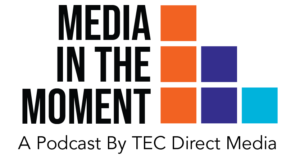How to Optimize Ad Campaigns: What You Need to Know
In today’s digital era, advertising plays a crucial role in the success of businesses across the globe. However, not all ad campaigns are created equal. The key to maximizing the impact of your advertising efforts lies in optimization.
Why Online Ad Optimization Matters
Online ad optimization is not just a luxury; it’s a necessity. In a landscape where digital ad space is increasingly competitive and consumer attention spans are shortening, enhancing ad performance and maximizing return on investment (ROI) have never been more important.
When you optimize your ad campaigns, you’re not just saving money; you’re also ensuring that your message reaches the right audience, at the right time, in the most effective way possible.

Benefits of Optimizing Ad Campaigns
The benefits of optimizing ad campaigns extend well beyond just boosting click-through rates (CTR) and conversion rates. Here’s a more comprehensive look at the advantages:
1. Enhanced Brand Awareness and Visibility
Optimizing your ads ensures they are seen by a broader segment of your target audience, significantly increasing your brand’s visibility.
This increased exposure is crucial for building brand awareness, as it puts your brand at the forefront of potential customers’ minds, making them more likely to recall your business when they’re ready to make a purchase.
2. Better Audience Targeting
Ad optimization allows for more precise targeting of your intended audience. By using data-driven insights to refine your targeting criteria, you can ensure your ads are being shown to individuals who are most likely to be interested in your products or services.
This not only increases the effectiveness of your campaigns but also improves the overall user experience by providing relevant content to the audience.
3. Improved ROI
One of the most significant benefits of ad optimization is the potential for a higher return on investment (ROI). By directing your ad spend towards the most effective campaigns, targeting methods, and ad creatives, you’re able to get more value for every dollar spent.
This optimization process helps reduce wasted ad spend on underperforming campaigns, thereby maximizing the overall efficiency of your advertising budget.
4. Increased Customer Engagement
Optimized ads are more engaging and relevant to the audience, leading to higher interaction rates. This engagement can take many forms, from clicks and shares to comments and likes, each of which serves to deepen the relationship between your brand and its audience.
High engagement rates are a strong indicator of ad relevance, which can also positively impact your ad rankings and visibility across platforms.
5. Competitive Advantage
In a crowded digital landscape, standing out from the competition is key. Through optimization, your ads become more targeted, engaging, and effective, giving you a competitive edge. This is particularly important in industries where many businesses are competing for the same audience’s attention.
Optimized ads can help your brand capture and retain interest more effectively than competitors, leading to better campaign performance and market positioning.
6. Data-Driven Insights for Future Campaigns
The process of optimizing your ad campaigns generates valuable data and insights that can inform your future marketing strategies.
By analyzing which aspects of your campaigns were most successful, you can apply these learnings to future efforts, continuously improving the effectiveness of your advertising over time. This cycle of testing, learning, and optimizing is fundamental to achieving long-term success in digital advertising.
The Process of Online Ad Optimization
- Setting Clear Goals and Objectives: Begin with a clear understanding of what you aim to achieve with your ad campaigns. This could range from increasing brand awareness to boosting sales.
- Analyzing Current Ad Performance: Utilize data and metrics to evaluate your current campaigns. Identifying Key Performance Indicators (KPIs) is essential at this stage.
- Target Audience Analysis: Understanding who your ads are for is crucial. Conduct thorough market research to define your target audience.
- Ad Creative and Copy Optimization: The content of your ads plays a significant role in their success. Craft compelling ad copy and design captivating visuals to grab attention.
- Landing Page Optimization: The destination of your ads should provide a seamless and engaging user experience. Optimize your landing pages to encourage conversions.
- Tracking and Monitoring: Implement tracking mechanisms and utilize analytics tools to monitor your campaign’s performance. This data is invaluable for making informed adjustments.

Strategies for Optimizing Online Ads
Several strategies can be employed to optimize online ads, including keyword research and targeting, ad placement refinement, A/B testing for ad variations, and ad schedule and budget optimization.
Remarketing and retargeting strategies, as well as the careful selection of ad networks and platforms, can also significantly improve campaign performance.
Keyword Research and Targeting
Keyword research is the cornerstone of any successful ad campaign. It involves identifying the terms and phrases your target audience uses when searching for products or services like yours. By integrating these keywords into your ads, you’re more likely to reach potential customers who are already interested in what you offer.
The process doesn’t stop at finding the right keywords; it also involves continuously analyzing their performance and adapting your strategy accordingly. This ensures your ads remain relevant and competitive in a constantly changing market.
Ad Placement Refinement
Where your ads appear can significantly impact their effectiveness. This strategy involves placing your ads on platforms where your target audience is most likely to see them. It also includes optimizing the position of your ads on a page, such as above the fold (the part of the webpage visible without scrolling) for higher visibility.
Refining ad placement is an ongoing process that should be adjusted based on performance metrics and changing audience behaviors.
A/B Testing for Ad Variations
A/B testing, also known as split testing, is a method of comparing two versions of an ad to see which one performs better. This strategy is crucial for understanding what appeals to your audience. By changing one element at a time, such as the headline, image, or call-to-action, you can determine which variations yield the best results.
Consistent A/B testing leads to improved ad effectiveness over time, as it allows you to refine your approach based on concrete data.
Ad Schedule and Budget Optimization
Timing and budget allocation are critical factors in the success of your ad campaigns. Optimizing your ad schedule means displaying your ads at times when your target audience is most active, thus maximizing the chances of engagement.
Budget optimization involves allocating your ad spend to the campaigns, platforms, and times that offer the highest return on investment (ROI). By monitoring your campaigns’ performance closely, you can make data-driven decisions on how to distribute your budget effectively.
Remarketing and Retargeting
Remarketing and retargeting are strategies designed to re-engage individuals who have previously interacted with your website or shown interest in your products or services. Through targeted ads, you can remind these potential customers of their interest, encouraging them to return to your site and complete a purchase.
This approach is highly effective because it focuses on people who are already familiar with your brand, making them more likely to convert.
Selection of Ad Networks and Platforms
The choice of specific media outlets and platforms plays a significant role in the reach and effectiveness of your ad campaigns. Each platform has its unique audience and set of features, making some more suitable for your business goals than others.
It’s important to research and make selections that best align with your target audience’s preferences and behaviors. Additionally, diversifying your ad campaigns across multiple outlets can help you reach a broader audience and identify the most effective channels for your specific objectives.
FAQs
What is online ad optimization?
Online ad optimization involves making systematic adjustments to your ad campaigns to improve their performance and efficiency.
Why is keyword research important in ad optimization?
Keyword research ensures your ads are visible to a target audience actively searching for products or services like yours, increasing relevance and click-through rates.
How does ad placement affect campaign success?
Ad placement impacts visibility and engagement; optimal placement can significantly increase the likelihood of your ads being seen and acted upon by your target audience.
What is A/B testing, and why is it crucial?
A/B testing compares two versions of an ad to determine which performs better, essential for understanding audience preferences and improving ad effectiveness.
Can small businesses benefit from ad optimization?
Yes, ad optimization allows small businesses to maximize their limited advertising budgets, focusing efforts on strategies that yield the best returns.
How long does it take to see results from ad optimization?
Results can vary, but initial improvements are often visible within a few weeks, with more significant outcomes taking longer depending on the campaign's scale and complexity.




